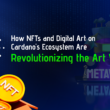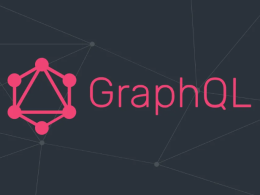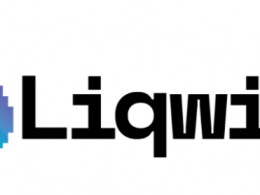The Big Data market is characterized by the recent adoption of the Data Lake architecture, which is based on the implementation of a central Nosql database such as MongoDB or HBase, where files of any type can be stored or retrieved.
Companies can virtually define central repositories for their information and data files (regardless of the type or content of those files). These repositories are generally designed to be easy to use and accessible.
The Data Lake is a data system or repository, stored in its natural/raw format, generally BLOBs (Binary Large OBject) or files. Data Lake can be hacked, thus gaining access to valuable data about the operations of the organization under attack.
It is common knowledge that one of the largest Cloud Computing companies, such as Google, tracks users online by passively collecting data using cookies, to use that information for advertising, which is the main source of income for the Internet company.
On December 8, 2021, an AWS (Amazon Web Services) outage had widespread effects on the internet. As a result, several centralized platforms like Netflix, Disney+, and even centralized crypto exchanges like Coinbase and Binance experienced outages. At that time, the 11th largest DeFi application on the Ethereum network according to DappRadar was dYdX, supposedly decentralized, also suffered from this event for having its infrastructure in the AWS cloud.
The four cloud service providers form a global oligopoly. This is how AWS, Google Cloud, Microsoft and IBM set high price levels and a high barrier to entry for global competition. The IAGON project must compete in this industry, with the main objective of revolutionizing this market, democratizing the participation and exchange of storage at a transparent price.
IAGON aims to provide an alternative to reliance on large centralized web service providers through true decentralization. By connecting data centers, business computers, and private users located around the world, the protocol will create decentralized storage for Web3 that is not dependent on centralized web infrastructure, allowing for better data control. Thus, he proposes to build a market for decentralized storage, imagining a future in which security, legal compliance and decentralization are united with adequate synergy.
Privacy will also be a goal of the project. Let’s see.
The IAGON Project
IAGON was founded in 2017, in Hamar, Norway, with the initial idea of creating a secure way for people to interact with health services, both nationally and internationally, while maintaining ownership of information, and reducing the risk of data loss in ransomware attacks.
The protocol will allow storage providers to earn rewards, exchanging their excess storage with resource consumers in a market at a transparent price, while ensuring data privacy, security and accessibility.
IAGON’s vision is that no one should benefit from data without sharing the profits with its owner. For this reason, strict privacy policies will be implemented, including a zero cookie policy. This means that browsing will be anonymous. No one will know who and what you click on IAGON-hosted websites, and all form entries will be deleted when you refresh a page.
Therefore, it is impossible for IAGON, or any other entity, to interact with the protocol to monetize private data without the user’s consent.
In future versions of the protocol, IAGON will also carry out computational processes in a secure and user-friendly manner, seeking to revolutionize the cloud computing markets, in addition to storage, by offering a decentralized network for both services.
IAGON plans to build a technology called Secure Lake, which will be based on decentralization, encryption, random clipping masks, error correcting codes, compression, and sharding, with one of its most important functions being to “freeze” the lake, which means that it will prohibit potential attackers from browsing within the data lake, after gaining access to it.
With IAGON, storage consumers will have the option to specify where their data should be stored and how it should be transferred or accessed. This allows the protocol to comply with region-specific data handling requirements, such as GDPR (General Data Protection Regulation).
Underutilized data centers, and home users with excess capacity, will be able to sell their resources on the market for rewards. As a result, instead of relying on the few large companies that currently offer cloud computing services, IAGON will enable consumers to tap into the vast market for underutilized resources.
The IAGON protocol uses Sharding, which is a method of dividing and distributing encrypted files horizontally, among multiple storage providers in a decentralized network.
Additionally, once a file is uploaded and fragmented, its owner will be able to see the number of fragments and an indication of where the storage providers hosting the fragments are located.
Sharding offers the following advantages:
- Data is secure and private, as it ensures that no one can reconstruct a file.
- Lower risk of data loss, because as more storage providers join the network, the level of redundancy increases, and the protocol distributes multiple copies of each data block among different storage providers.
- Faster download speeds, because the content of a file is spread across a large number of storage providers, so the network is not prone to bottlenecks.
To store data, the first version of the IAGON protocol will use a modified version of IPFS, a distributed system based on a peer-to-peer storage network. IPFS breaks the data into chunks, assigns a unique identifier to each chunk, and stores this unique identifier along with the list of peers hosting that chunk in a Distributed Hash Table (DHT). A DHT is a mapping of unique IDs for peers that store data.
In future versions of the protocol, IAGON will implement its own fragmentation protocol that will differ from IPFS in several ways. IAGON’s sharding protocol will improve data recoverability and protocol resiliency.
The architecture of the Iagon protocol is comprised of the following components:
- Iagon client application: Allows storage consumers to interact with the protocol. It will be implemented in the following forms: Web application, Electron application, Browser extension.
- Cardano wallet: Allows users to manage their cryptocurrencies and submit transactions to the Cardano blockchain. It will be used as a user authentication tool to access data and for payments. Adagio: Implements a rewards model for storage providers, connecting the demand of the consumers to the supply from the providers. Fermato: Enables communication between storage consumers and smart contracts deployed on the Cardano blockchain, allowing storage consumers to purchase storage and manage their existing subscriptions.
- Rubato: Is the storage marketplace that encodes the supply and demand for storage, allowing storage consumers to reserve and consume storage. It implements both a static pricing model for enterprise storage providers, and a dynamic one for retail resource providers.
- Network Performance Explorer: This component measures the performance of resource providers by assessing parameters such as uptime, connection speed, etc.
- Node: To join the network and share their excess resources, storage providers must run the Iagon client application. A node is a computer on which the Iagon application is running.
Transaction Fees
With IAGON, all transactions incur two fees:
- Transaction Fee: This is a computational fee paid in Ada that covers the cost of processing transactions on the Cardano blockchain.
- Market transactions: the protocol charges a commission for each transaction. The fee is split between Adagio and IAG token participants.
IAGON targets both enterprise and retail storage providers. Therefore, the network will implement both a static pricing model for business services, with fixed rates, and a dynamic one, for retail providers, where the price will be determined by a deterministic calculation based on the storage available and consumed within the subnet. selected by the user, via Automated Market Maker (AMM), which is a decentralized exchange protocol that uses a mathematical formula to set the price of assets.
Tokenomics
IAG is the native token, with limited supply. Initially the IAG token was launched as an ERC token, however, as Ethereum faces scaling issues, IAGON decided to implement the protocol on the Cardano network.
One billion IAG tokens have already been minted as ERC-20 tokens on Ethereum. Later, an equal supply will be minted on Cardano and locked into the bridge smart contract, which will allow users to move their IAG tokens between Ethereum and Cardano.
There are three main categories of IAG token holders:
- Public – Includes all public sales, community-managed grant funds, and other incentive rewards.
- Foundation: tokens allocated to the foundation for liquidity and development.
- Team and Private Investors: Includes all team, company and Venture Capital tokens.
IAG Token Vesting Schedule
- The presale has four rounds: Seed, Strategic, Private Sale and Public Sale
- Total fixed supply: 1,000,000,000 tokens
- Funds raised: $3.6 million
- Initial market cap: $1.04 million
IAG Token has a linear distribution timeline starting from July 2021, considered as TGE (Token Generation Event)
IAG fulfills the following key functions in the IAGON protocol:
- Earn rewards through participation
- Earn a share of transaction fees
- Incentivize storage providers
- Fund further development of the system
IAGON currently has an ISPO underway, details of which you can read here.
Roadmap
2022
- MVP Alpha Test on Cardano for end storage users
- Open-source codes for enterprise resource providers
- MVP Beta Test for end users with new UI/UX
Achieved Milestones
- ICO: 550,000 USD raised
- Government grants from Innovation Norway
- Approved by Norway Skattefunn for tax incentives ( Norwegian government program)
- IAGON patent published internationally
- POC storage testnet released on Ethereum
- IAG ERC-20 token released
- IDO: 3,600,000 USD raised
- Cardano Summit – Agora public file system announced
- IAGON patent published in EU
- Implemented Encryption
- Utility/Rewards model for IAG holders
- MVP demo to onboard selected enterprise resource providers
The Team
Its three co-founders are Dr Elad Harison, an expert in AI, advisor to companies in banking, tourism and airlines, Dr. Claudio Lima, with experience in Blockchain DLT and Machine Learning/AI, and Rohit Gupta, Senior Engineering Manager at Google.
You can see the rest of the team.
. . .
Website: https://iagon.com












